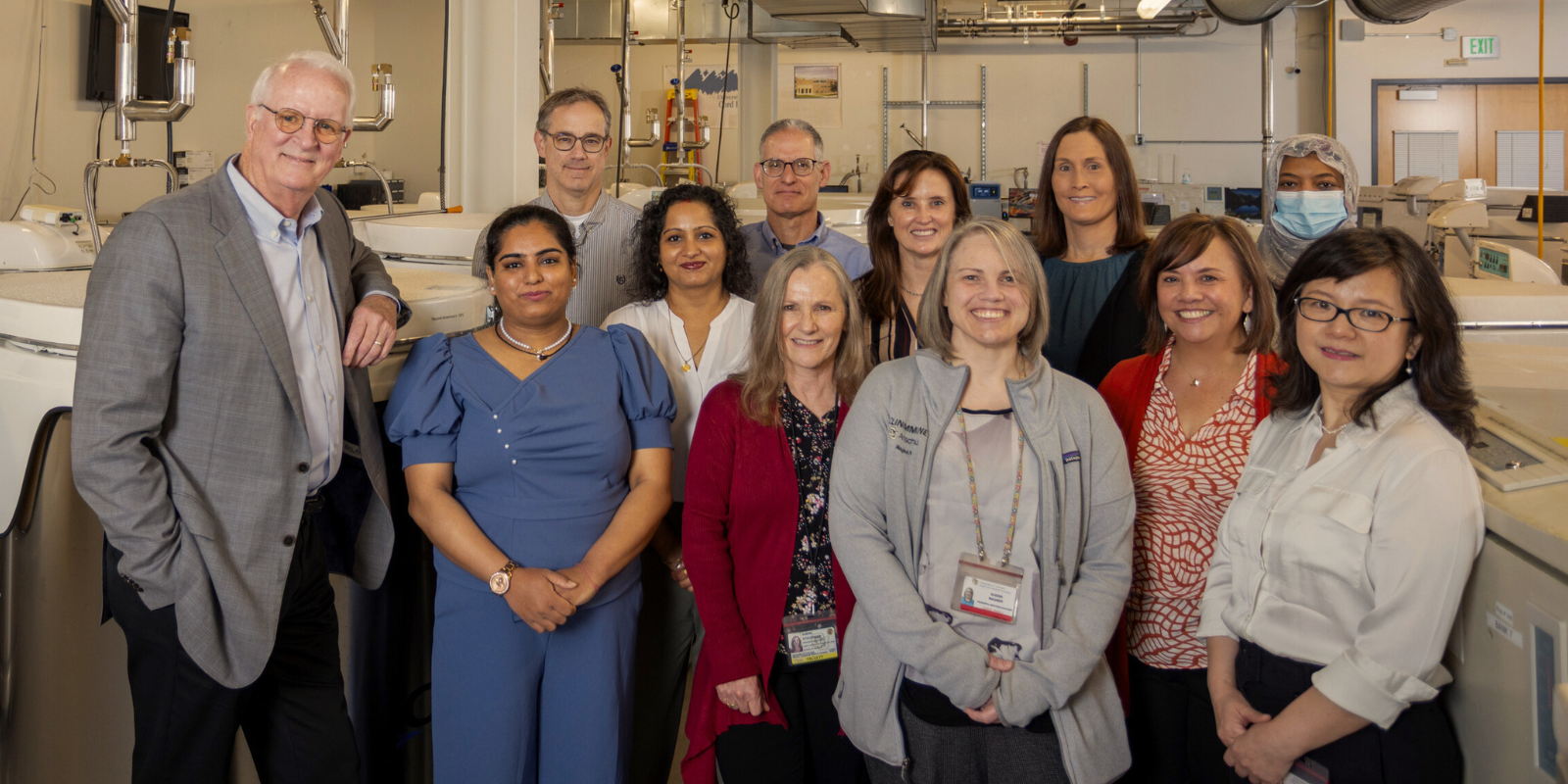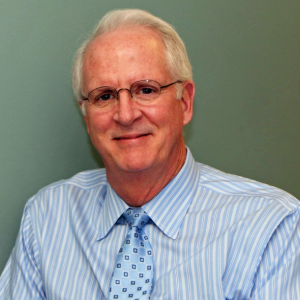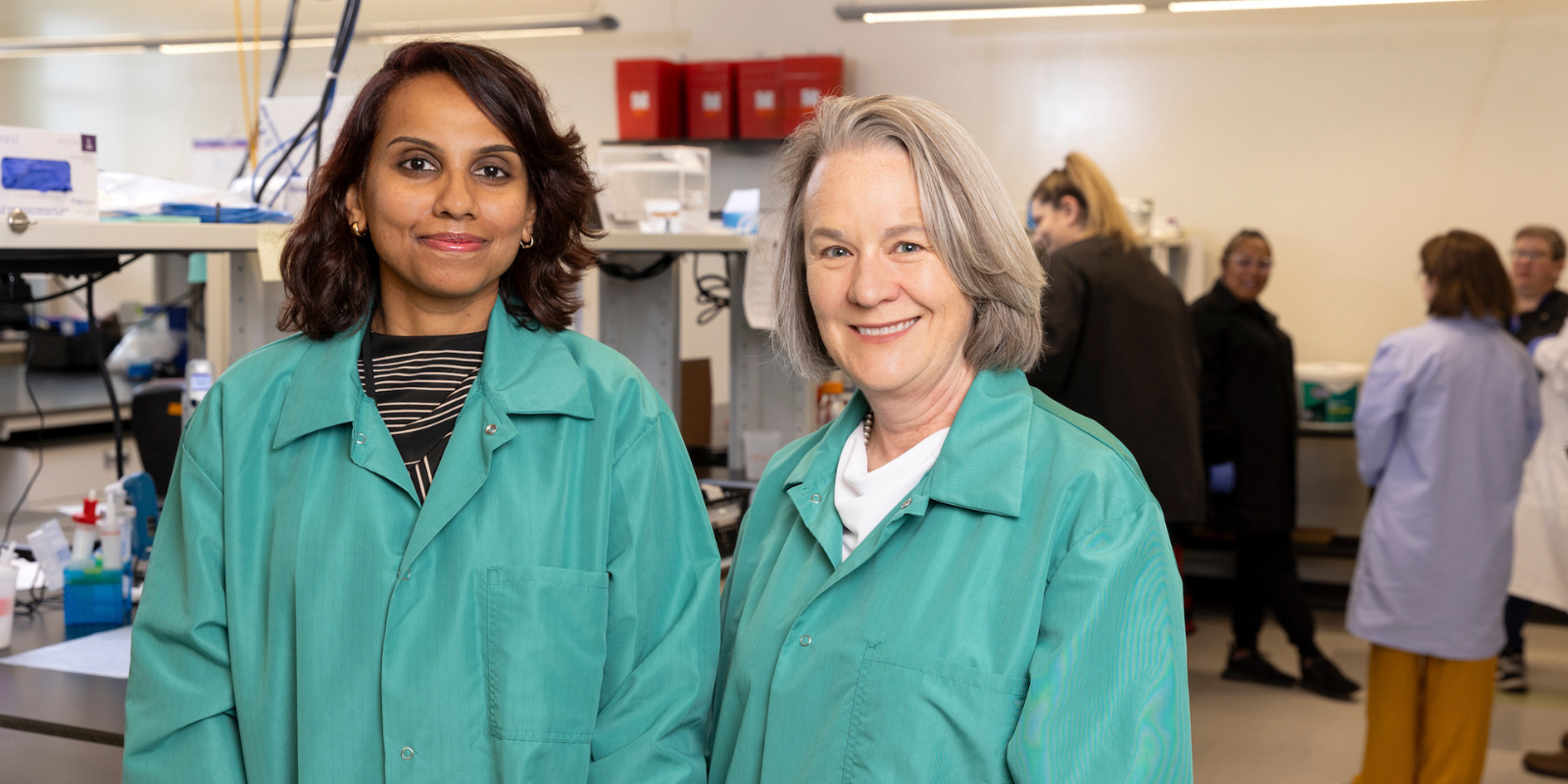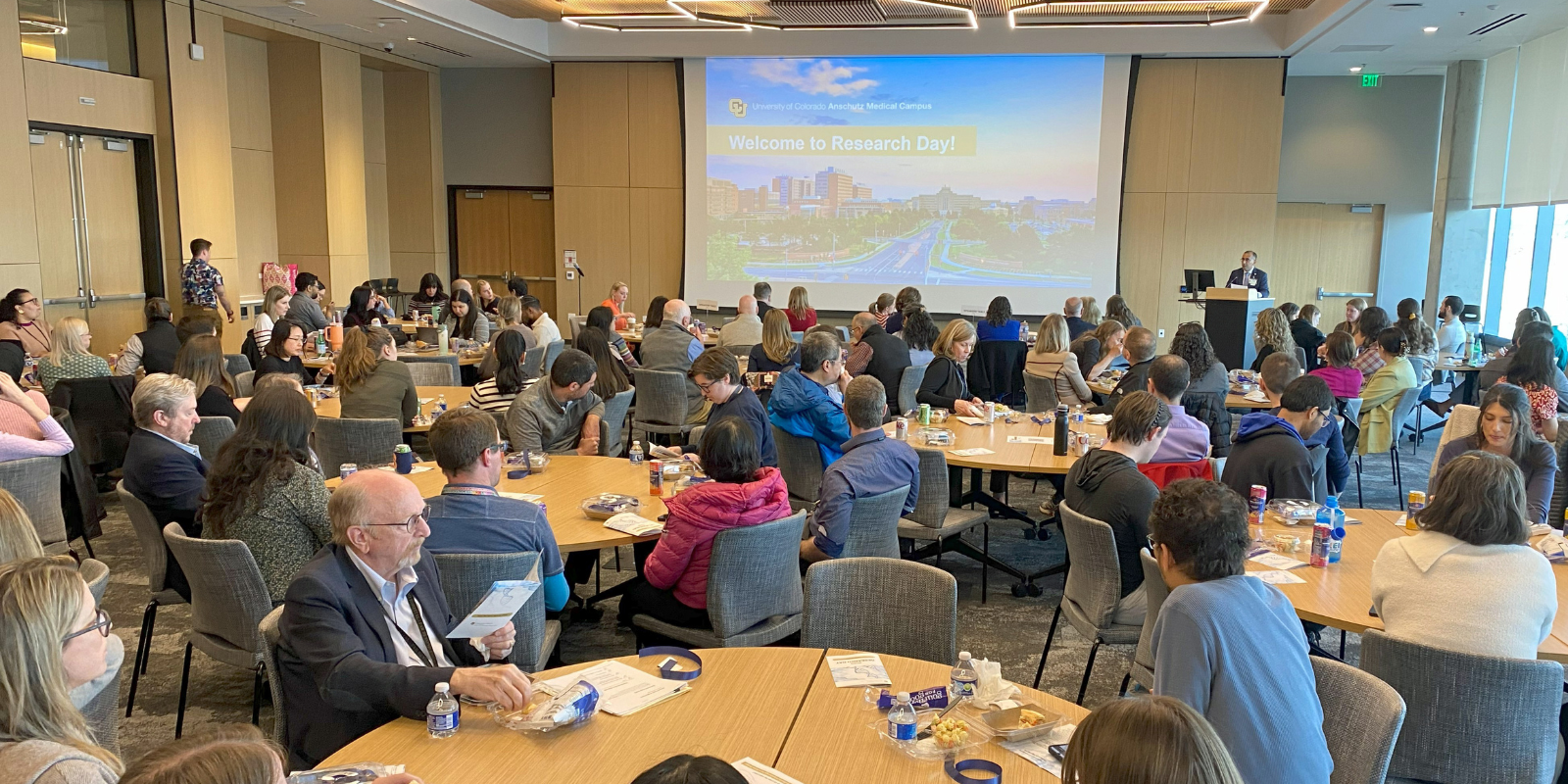The innovative work of a University of Colorado Department of Medicine scientist in seeking potential cures for autoimmune diseases is just one example of how academic research leads to startup businesses that can bring new therapies to patients.
Brian Freed, PhD, is a professor in the Division of Allergy and Clinical Immunology. He has pioneered gene-editing techniques involving the human leukocyte antigen (HLA) gene, which plays a key role in triggering autoimmune diseases. “We sometimes call it plastic surgery on the immune system,” he says.
Freed is founder and executive director of ClinImmune, the CU Anschutz Medical Campus center for clinical immunology. ClinImmune launched in 1997 to facilitate genetic matching for organ and stem cell transplants. More recently, the lab has branched out into cell and gene therapies, making key discoveries about HLA editing.
Armed with that technology, Freed has co-founded RheumaGen, a company where he also is chief science officer. RheumaGen is developing ways to use HLA editing of cells extracted from a patient’s bone marrow to treat the root causes of rheumatoid arthritis (RA) and other autoimmune diseases that afflict millions. Freed hopes to start phase 1 of clinical trials on one of RheumaGen’s therapies in 2026, with more to come.
→ Video: HLA Gene Editing to Treat Refractory Rheumatoid Arthritis
Uniquely suited
Freed’s work is part of a continuum that often figures into the development of treatment breakthroughs for challenging diseases at CU Anschutz, from basic research, discovering potential drugs, and lab testing using campus resources to a startup venture, clinical trials, regulatory approval, manufacturing, and marketing.
“We’ve been able to assemble a team that really knows how to do this sort of thing, and we’ll be able to bring gene therapy to a clinical trial for about 10% of the cost that you typically would associate with biotech companies that have to build labs and so forth,” Freed says. “It’s not enough to come up with a therapy. You have to do it in an economical manner or you can’t sell it, which is something the university partnership with RheumaGen offers.”
He says the CU Anschutz campus is uniquely suited for translating innovation to medication.
“We have faculty in all the areas that we need for this. We can draw on expertise in rheumatology, pharmacology, and hematology-oncology. We have core facilities. We have this big biotech park. ClinImmune has a lot of experience in this. CU Innovations is where we started with the patents. The whole campus is an innovation community. The likelihood of being able to do this on most other campuses is pretty small.”
→ Leveraging Data Science for Disease Prediction in the Fight Against Rheumatoid Arthritis
More than 15 million diagnosed
In autoimmune diseases, the body’s immune system mistakenly identifies healthy cells, tissues, and organs as being foreign and attacks them, causing inflammation. These diseases can affect almost any part of the body, and symptoms can be mild to severe.
There are more than 100 autoimmune disorders, the most common of which is RA. Others include type 1 diabetes, multiple sclerosis, lupus, Crohn’s disease, psoriasis, and celiac disease.
More than 15 million people in the U.S., about 4.6% of the population, have been diagnosed with at least one autoimmune disease, and nearly two-thirds of them are women, a recent study says.
Existing treatments often involve powerful immunosuppressive drugs to manage or suppress these diseases, but they require repeated doses, often over a lifetime, and generally do not produce sustained, drug-free remission. And 10% to 15% of autoimmune disease cases are “refractory,” meaning treatment is ineffective.
Photo at top: Brian Freed, PhD (left) and the staff of RheumaGen. Photo by Juston LeVett for the CU Department of Medicine.
A frame from a RheumaGen animated video shows an artist's conception of the editing of a tiny part of the HLA gene. Image courtesy of RheumaGen.
Editing the immune gene
HLA, which RheumaGen refers to as the “immune gene,” is found on the surface of most cells in the body. HLAs normally help the immune system distinguish between the body’s own cells and foreign pathogens that could be harmful, which the immune system then attacks. But in autoimmune diseases, HLAs can play a role in the immune system mistakenly attacking healthy tissue.
HLA editing aims to switch off the harmful response by making a tiny change to the gene, replacing one amino acid. The change eventually makes a patient’s HLAs mirror those of a person resistant to a particular autoimmune disease, restoring the immune system to normal.
“We found that if we change one amino acid, we can sneak it by the immune system,” Freed says. “It doesn’t get rejected because it’s so close to what was there before that the body doesn’t see it as different, and it stops the immune response we don’t want.”
The process involves collecting hematopoietic stem cells (HSCs) from the patient’s bone marrow. The HLA in the extracted HSCs is edited by means of a technology called CRISPR-Cas9, using a gene-cutting protein called Cas9 and a guide RNA molecule to direct it to the location to be edited. And then the altered HSCs are infused back into the patient. Within days, the HSCs start making cells with the modified HLA.
“We anticipate this can be done on an outpatient basis,” Freed says. “Once you donate the cells, we do the editing and then freeze the cells and then ship them back to you, so you can do the infusion anytime, whenever it’s convenient.”
→ Do Stem Cell ‘Memories’ Trigger Autoimmune Disease Flare-Ups?
Three therapies in the pipeline
RheumaGen currently has three potential therapies based on HLA editing in its development pipeline. In the lead is RG0401, a potential treatment for 10% to 20% of refractory RA patients who have been treated with two existing therapies “and nothing is working,” Freed says.
RG0401 is currently undergoing what are called IND-enabling studies, which help define the pharmacological and toxicological properties of a drug before submitting an “investigational new drug” application to the U.S. Food and Drug Administration. Phase 1 clinical trials could come in 2026, Freed hopes.
Next in line are potential treatments for multiple sclerosis (RG1501, also at the pre-IND stage) and for type 1 diabetes (RG0302, in the discovery phase).
CU, ClinImmune, and RheumaGen all have roles to play in the process, Freed says.
“ClinImmune does the processing of bone marrow when people need bone marrow transplants, and does HLA analysis associated with autoimmune diseases,” he explains. “So, putting those things together, we came up with the patents for editing HLA to make changes in the bone marrow. Those patents are then signed over to the university. The university, to commercialize those patents, needs to license them out to somebody. So we formed RheumaGen, which acquired the patents from CU. RheumaGen, as a private company, can take in venture capital and revenue to invest in this technology, whereas ClinImmune can’t do that. You can’t invest in a university lab; you can invest in a private company.”
Closing the loop
Freed co-founded RheumaGen with his nephew, CEO Richard Freed, who has experience in biotech venture launches. Richard Freed brought in two lawyers, brothers Brian Hart and Ryan Hart, as chief operating office and chief legal officer, respectively.
The Harts have a personal stake in the work: Their mother has lived with RA for more than a quarter century.
So far, RheumaGen has raised $20 million to develop the technology and fund upcoming clinical trials, Brian Freed says.
“Then RheumaGen turns around and contracts back with ClinImmune to do the basic scientific work, the manufacturing, and so forth,” he says. “It’s closing the loop, if you will.”
CU has a 5% stake in RheumaGen, so it stands to share in any profits on treatments that go to market.
The ambitions of RheumaGen’s leaders are high in the fight against autoimmune diseases.
“We founded RheumaGen to relieve the burden that individuals suffering from autoimmune diseases have carried for so long,” CEO Richard Freed said in a January press release. “We are not interested in incremental improvements. We seek cures and remission.”
Image at top: A frame from a RheumaGen animated video shows an artist's conception of the editing of a tiny part of the HLA gene. Image courtesy of RheumaGen.





